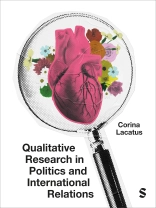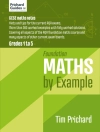This groundbreaking textbook is the essential introduction to qualitative research for politics and international relations. Presented in a refreshingly accessible manner, this text applies a practical approach to help you learn by doing and will equip you with the tools to get researching. Embrace a pedagogical approach that seamlessly integrates theoretical insights with hands-on guidance, empowering you to navigate the complexities of qualitative research with confidence and clarity.
Key Benefits Include:
· Practical Approach: bid farewell to abstract learning with practical tools and exercises that instil intuition and proficiency. Step-by-step support for students grappling with the logistical intricacies of research design, data collection, and analysis.
· Close Links to the Disciplines: immerse yourself in the latest seminal research and learn how to select robust qualitative designs for your research questions.
· Demystify Theory and Methodology: this text addresses the perennial challenge of aligning theory with methodology, providing a cohesive framework for qualitative research.
· Expert Guidance: for educators seeking to incorporate this invaluable resource into their curriculum, a complementary online teaching guidebook offers guidance and suggestions on how to truly engage with the material and enrich the learning experience for your students.
An essential companion for undergraduate students navigating qualitative methods modules to postgraduate students and researchers shaping their research projects.
Corina Lacatus is a Senior Lecturer in Global Governance at the School of Politics and International Relations, Queen Mary University of London.
Содержание
Part 1: Foundations of qualitative research
Chapter 1: What is qualitative research?
Chapter 2: Theory, Methodology and Methods in Politics and International Relations
Chapter 3: How do I ask a good research question?
Chapter 4: Collecting qualitative data
Chapter 5: Some challenges of research design and of qualitative data analysis
Chapter 6: Ethical considerations
PART 2: Doing qualitative research
Chapter 7: Ethnographic field research
Chapter 8: Content-centred research
Chapter 9: Discourse analysis
Chapter 10: Historical research
Об авторе
Corina Lacatus is a Lecturer in the School of Politics and International Relations at Queen Mary University of London. During 2020-2021, she is a Hillary Rodham Clinton Fellow at the Queen’s University Belfast. Corina′s research explores international organisations’ responses to complex humanitarian crises, focusing on crises of forced human displacement and public health. It is at the intersection of International Relations and Comparative Politics but also engages actively with Political Communication scholarship. Writ large, she is a scholar of international co-operation and global governance, focusing on the influence that international organisations like the United Nations and the European Union have on domestic institutions, politics, and societies. So far, her research has explored these dynamics in different areas of policy-making and practice – crisis management, south-to-north and south-to-south migration, human rights, peace agreements and human rights after conflict, and corruption control.In addition, she has developed a research agenda in Political Communication, focusing on the formation and strategic uses of electoral rhetoric to advance populist political agendas. She has carried out analyses of large bodies of social media data (Twitter-based) and other Internet-based data – blogs, press releases, rally speeches and video material.












